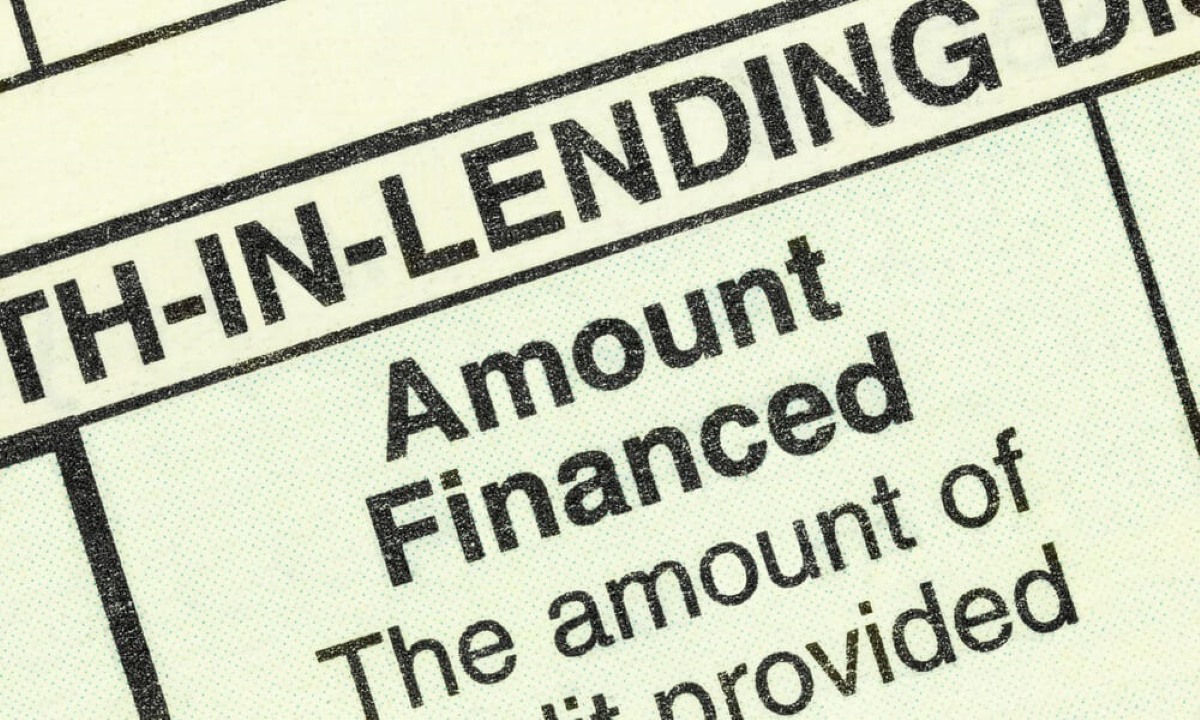Home>Finance>DSNP Loses Eligibility: What Cost Sharing Is Responsible During Grace Period?


Finance
DSNP Loses Eligibility: What Cost Sharing Is Responsible During Grace Period?
Published: February 20, 2024
Learn about the financial implications of DSNP losing eligibility and the cost sharing responsibilities during the grace period. Understand the impact on your finances.
(Many of the links in this article redirect to a specific reviewed product. Your purchase of these products through affiliate links helps to generate commission for LiveWell, at no extra cost. Learn more)
Table of Contents
Introduction
Dual Eligible Special Needs Plans (DSNP) play a crucial role in providing comprehensive healthcare coverage for individuals who are eligible for both Medicare and Medicaid. These plans are designed to cater to the unique needs of dual-eligible beneficiaries, offering a wide range of benefits that go beyond what traditional Medicare and Medicaid plans provide. However, recent changes have impacted the eligibility criteria for DSNP, leading to concerns about cost sharing responsibilities during the grace period.
Understanding the implications of these changes is essential for dual-eligible individuals and their caregivers to navigate the complexities of healthcare coverage effectively. In this article, we will delve into the intricacies of DSNP eligibility, explore the concept of the grace period, and shed light on the cost sharing responsibilities that arise during this transitional phase.
By gaining a deeper understanding of these aspects, dual-eligible beneficiaries and their advocates can make informed decisions and ensure continuity of care without being burdened by unforeseen financial obligations. Let's embark on this insightful journey to unravel the nuances of DSNP eligibility and the implications of the grace period on cost sharing responsibilities.
Understanding DSNP Eligibility
Dual Eligible Special Needs Plans (DSNP) are tailored to meet the healthcare needs of individuals who qualify for both Medicare and Medicaid. To be eligible for a DSNP, individuals must meet the criteria for dual eligibility, which typically includes being enrolled in Medicare Parts A and B and being eligible for some form of Medicaid benefits. These plans are specifically designed to provide comprehensive coverage, including prescription drugs, preventive care, specialist visits, and other essential healthcare services.
DSNPs offer a holistic approach to healthcare, addressing the unique requirements of dual-eligible beneficiaries by coordinating medical, behavioral, and long-term care services. This integrated approach aims to streamline healthcare delivery and improve health outcomes for individuals facing complex medical and financial challenges.
Furthermore, DSNPs often feature additional benefits such as dental, vision, and hearing coverage, as well as transportation services and wellness programs. These supplemental offerings enhance the overall value of DSNPs, making them an attractive option for individuals seeking comprehensive and coordinated care.
It’s important to note that DSNP eligibility requirements may vary by state, and individuals should consult with their healthcare providers or Medicaid offices to determine their eligibility for these specialized plans. By understanding the specific eligibility criteria for DSNPs, dual-eligible beneficiaries can access tailored healthcare solutions that address their diverse needs while maximizing the benefits available through Medicare and Medicaid.
DSNP Grace Period
The DSNP grace period refers to a transitional timeframe that allows individuals to maintain their DSNP coverage despite changes in their Medicaid eligibility. This grace period serves as a vital safety net for dual-eligible beneficiaries, providing them with continued access to essential healthcare services while navigating shifts in their Medicaid status.
During the grace period, individuals who no longer meet the Medicaid eligibility requirements can retain their DSNP coverage for a specified duration, ensuring uninterrupted access to medical care and prescription drug benefits. This temporary extension of coverage offers a crucial buffer, allowing beneficiaries to adjust their healthcare plans without facing abrupt disruptions in their access to vital services.
It’s important to recognize that the grace period is designed to facilitate a smooth transition for individuals experiencing changes in their Medicaid status, providing them with an opportunity to explore alternative coverage options or address any lapses in Medicaid eligibility without immediately losing their DSNP benefits.
While the specifics of the grace period may vary based on state regulations and plan details, its overarching purpose remains consistent: to offer dual-eligible beneficiaries a measure of stability and flexibility during periods of fluctuating Medicaid eligibility. By understanding the nuances of the DSNP grace period, individuals can navigate transitions in their healthcare coverage with greater confidence and assurance, knowing that they have a window of time to address any changes in their Medicaid status while maintaining their DSNP benefits.
Cost Sharing Responsibilities During Grace Period
While the DSNP grace period provides a valuable buffer for individuals experiencing changes in Medicaid eligibility, it’s crucial to understand the implications of cost sharing during this transitional phase. During the grace period, dual-eligible beneficiaries may encounter specific cost-sharing responsibilities that warrant careful consideration to manage their healthcare expenses effectively.
One key aspect to bear in mind is that individuals in the grace period may still be responsible for copayments, coinsurance, and deductibles associated with their DSNP coverage. These out-of-pocket expenses are integral components of the cost-sharing structure within DSNPs and continue to apply during the grace period, albeit with potential adjustments based on the individual’s Medicaid status and plan provisions.
Moreover, prescription drug costs, including copayments for medications, remain part of the cost-sharing framework during the grace period. It’s essential for dual-eligible beneficiaries to stay informed about any modifications to their prescription drug coverage and associated costs as they navigate the grace period, ensuring that they can access necessary medications without encountering unexpected financial burdens.
Additionally, individuals in the grace period should remain mindful of any changes in network coverage and provider networks that may impact their cost-sharing responsibilities. Understanding which healthcare providers and pharmacies fall within their plan’s network can help beneficiaries optimize their cost-sharing arrangements and minimize potential out-of-network expenses during this transitional phase.
As dual-eligible beneficiaries navigate the complexities of cost sharing during the grace period, seeking guidance from healthcare professionals, Medicaid representatives, and DSNP insurers can provide invaluable clarity on managing out-of-pocket expenses while maintaining essential healthcare coverage. By proactively addressing cost-sharing responsibilities and staying attuned to changes in coverage and associated expenses, individuals can effectively navigate the financial aspects of their healthcare during the grace period, ensuring continued access to vital services without undue financial strain.
Conclusion
As dual-eligible individuals and their advocates navigate the evolving landscape of DSNP eligibility and the associated grace period, it’s essential to approach these changes with informed awareness and proactive planning. Understanding the intricacies of DSNP eligibility criteria, the purpose of the grace period, and the implications of cost sharing during this transitional phase empowers individuals to make well-informed decisions regarding their healthcare coverage.
By comprehending the specific eligibility requirements for DSNPs and the comprehensive benefits they offer, dual-eligible beneficiaries can access tailored healthcare solutions that address their diverse needs while maximizing the advantages available through Medicare and Medicaid. This knowledge enables individuals to make informed choices that align with their unique healthcare requirements and financial circumstances.
Furthermore, recognizing the significance of the grace period as a safeguard during shifts in Medicaid eligibility underscores the importance of maintaining continuity in healthcare coverage. The grace period provides a valuable opportunity for individuals to navigate changes in their Medicaid status without experiencing abrupt disruptions in their access to essential healthcare services, offering a measure of stability and flexibility during transitional phases.
Considering the cost-sharing responsibilities that persist during the grace period, it’s crucial for dual-eligible beneficiaries to stay attuned to potential out-of-pocket expenses, prescription drug costs, and network coverage considerations. Seeking guidance from healthcare professionals, Medicaid representatives, and DSNP insurers can help individuals effectively manage their cost-sharing responsibilities while preserving access to vital healthcare services.
In essence, by embracing a well-informed and proactive approach to DSNP eligibility, the grace period, and cost sharing, dual-eligible beneficiaries can navigate the complexities of healthcare coverage with confidence and clarity. This empowers individuals to uphold their healthcare needs effectively while navigating transitions in Medicaid eligibility, ensuring continued access to comprehensive and coordinated care through DSNPs.
Ultimately, by fostering a deeper understanding of these critical aspects, dual-eligible individuals and their advocates can navigate the intricacies of DSNP eligibility and the associated grace period with resilience and resourcefulness, ensuring that their healthcare needs remain a steadfast priority amid evolving circumstances.














